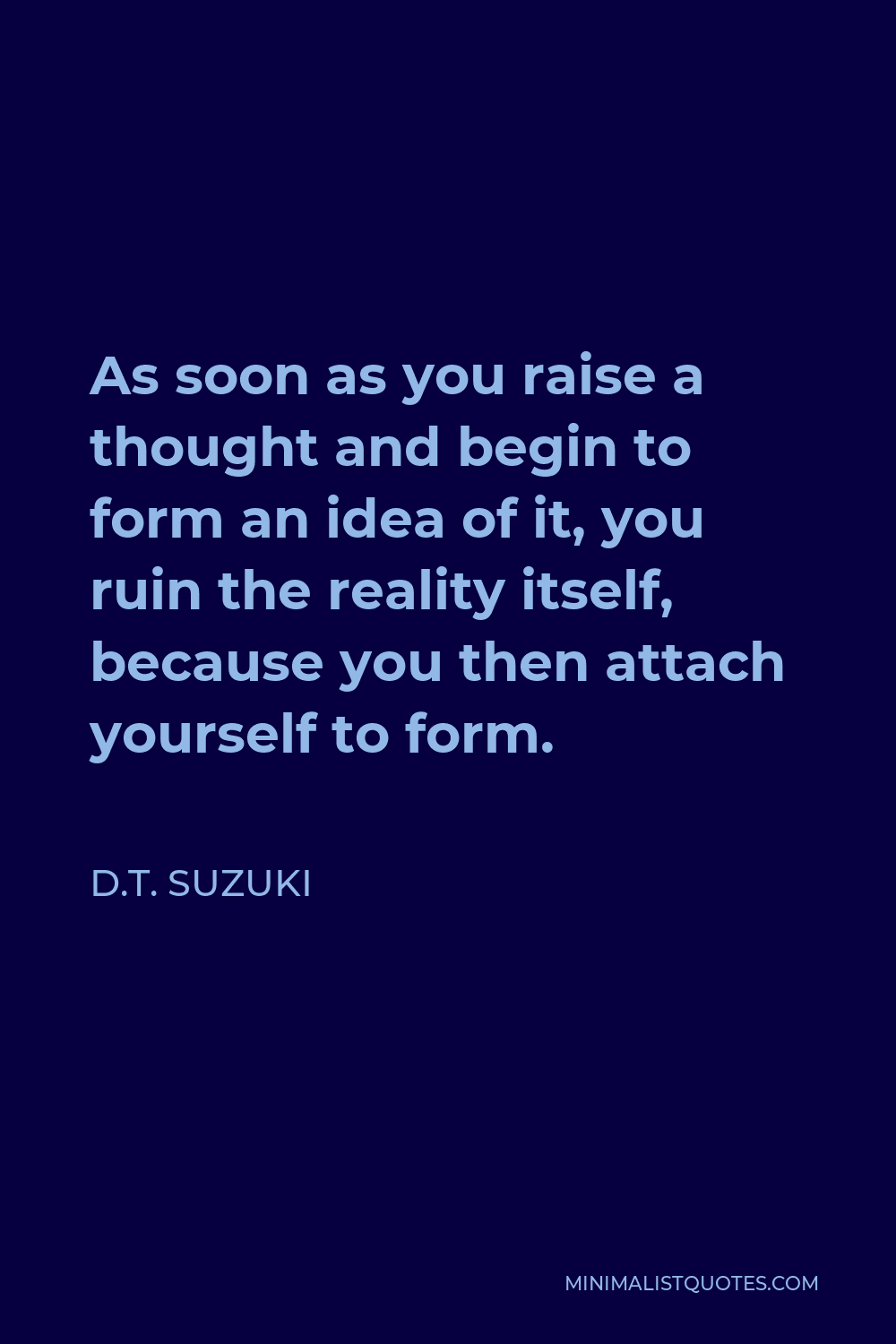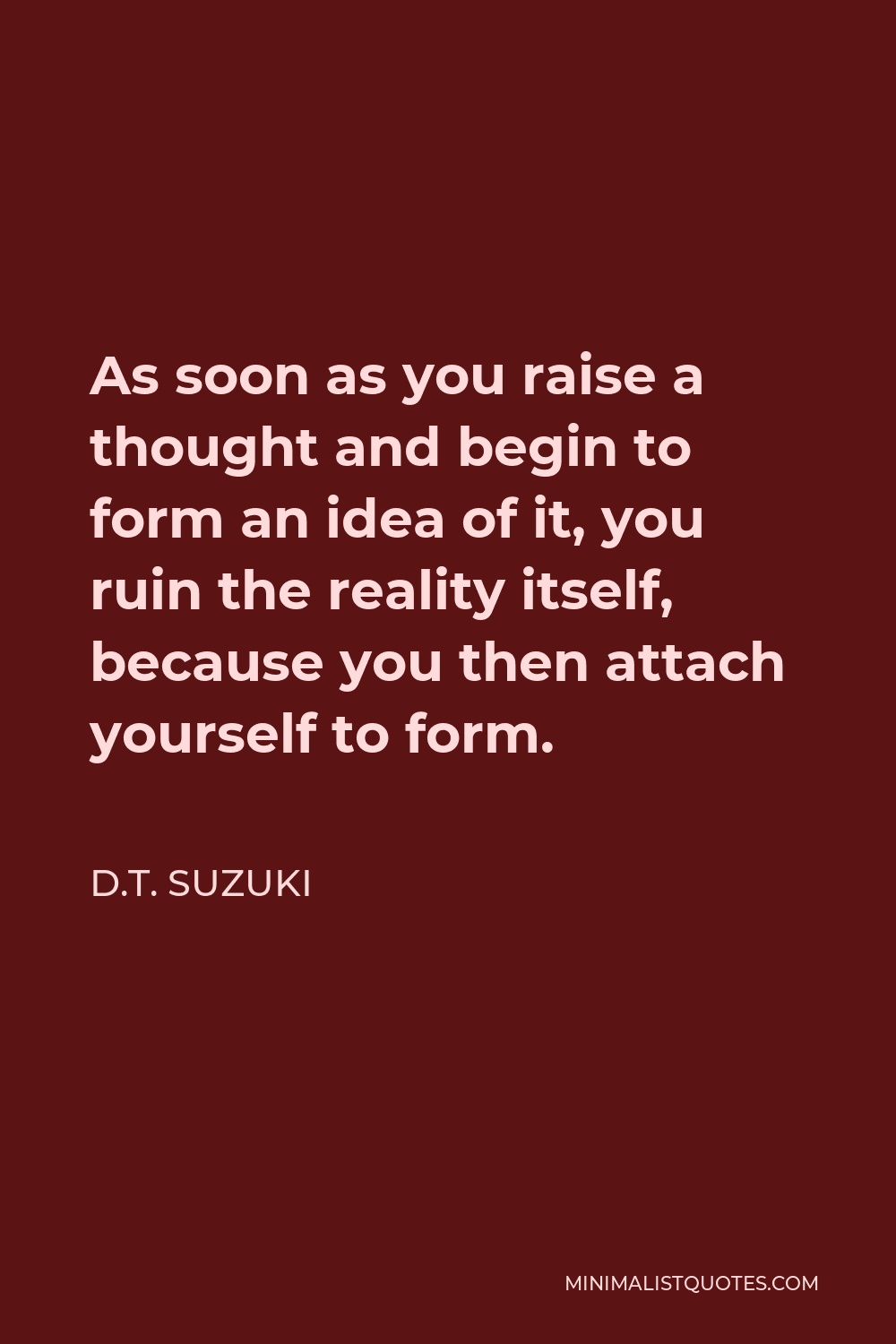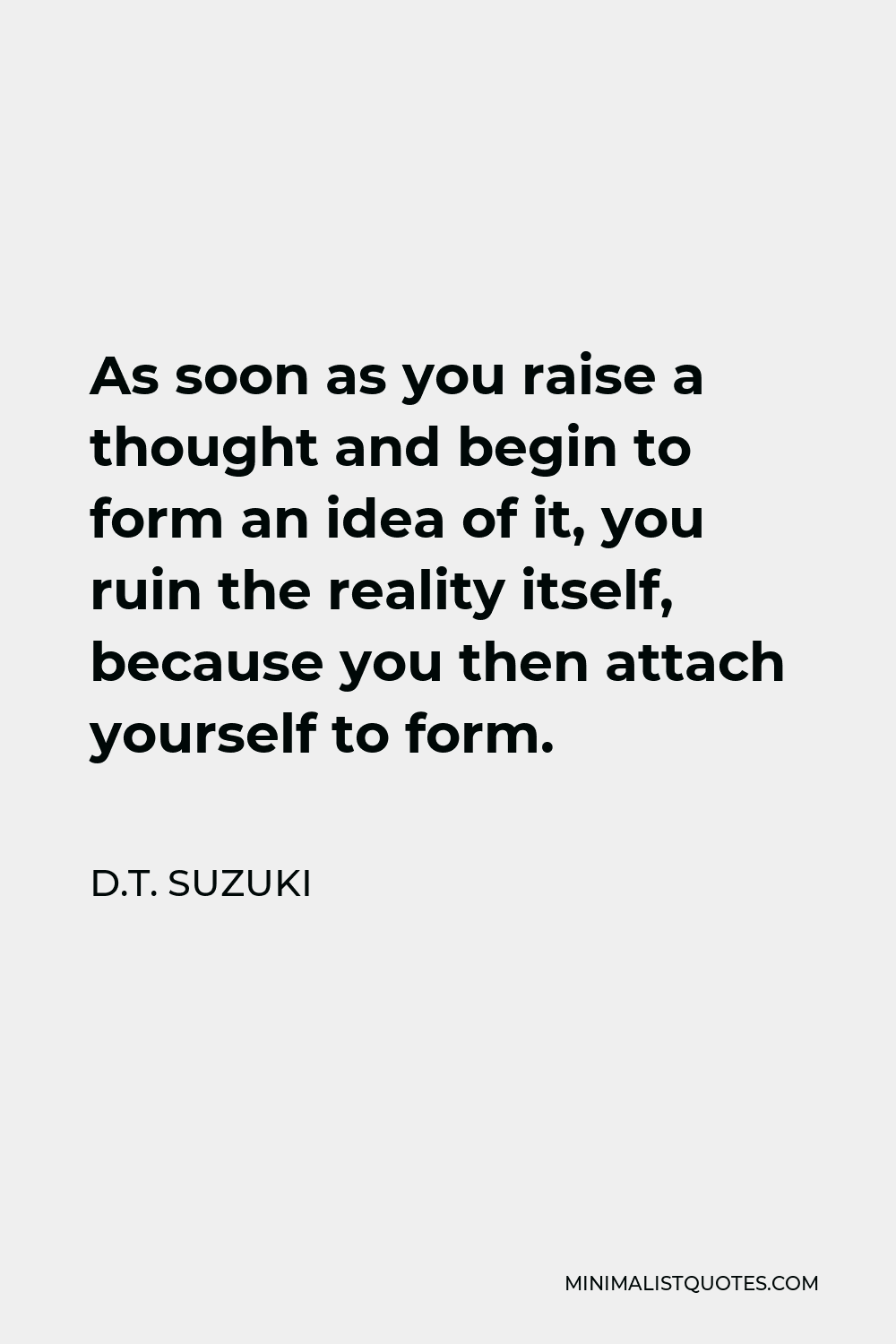Absolute faith is placed in a man’s own inner being. For whatever authority there is in Zen, all comes from within.
D.T. SUZUKIAs soon as you raise a thought and begin to form an idea of it, you ruin the reality itself, because you then attach yourself to form.
More D.T. Suzuki Quotes
-





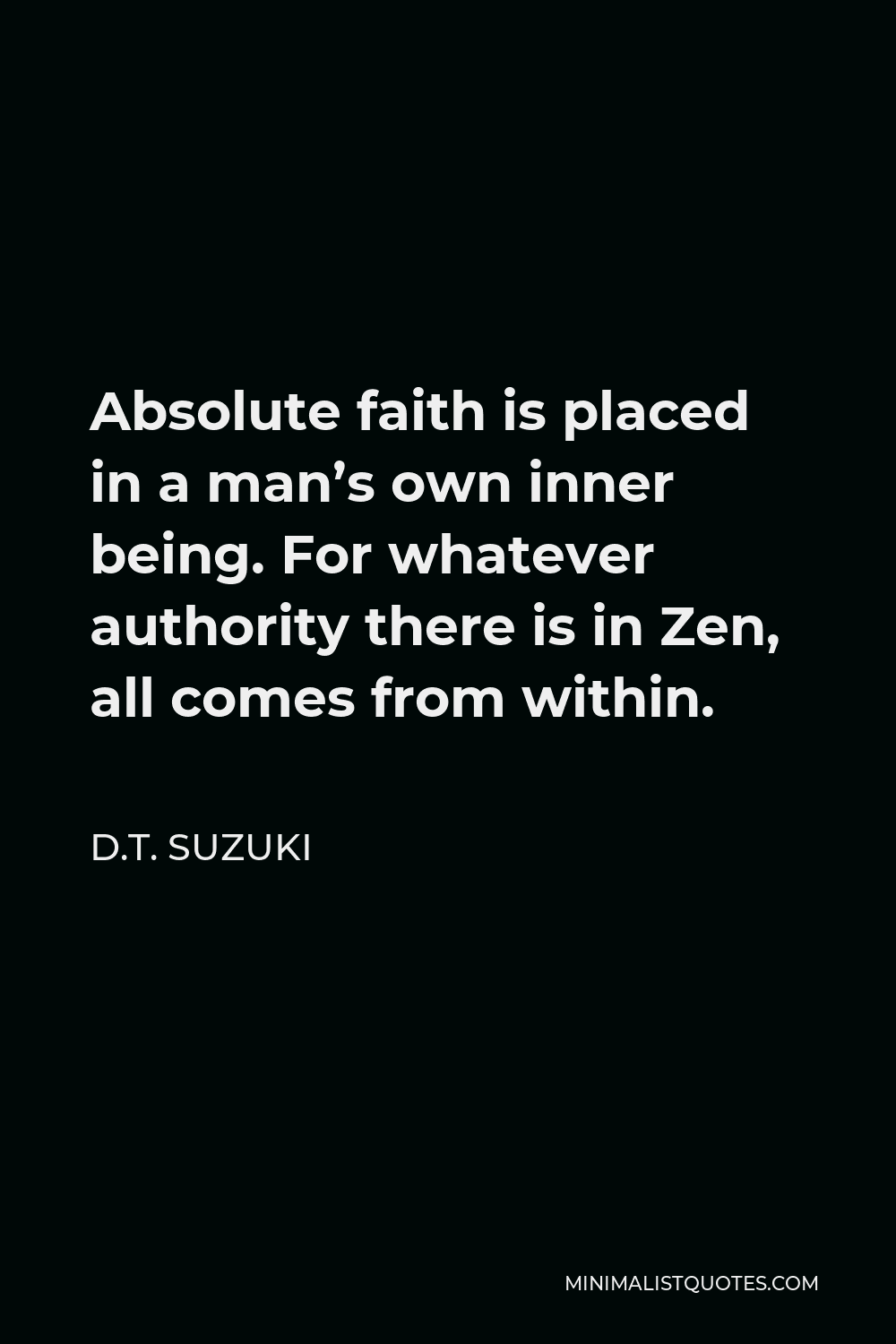
-





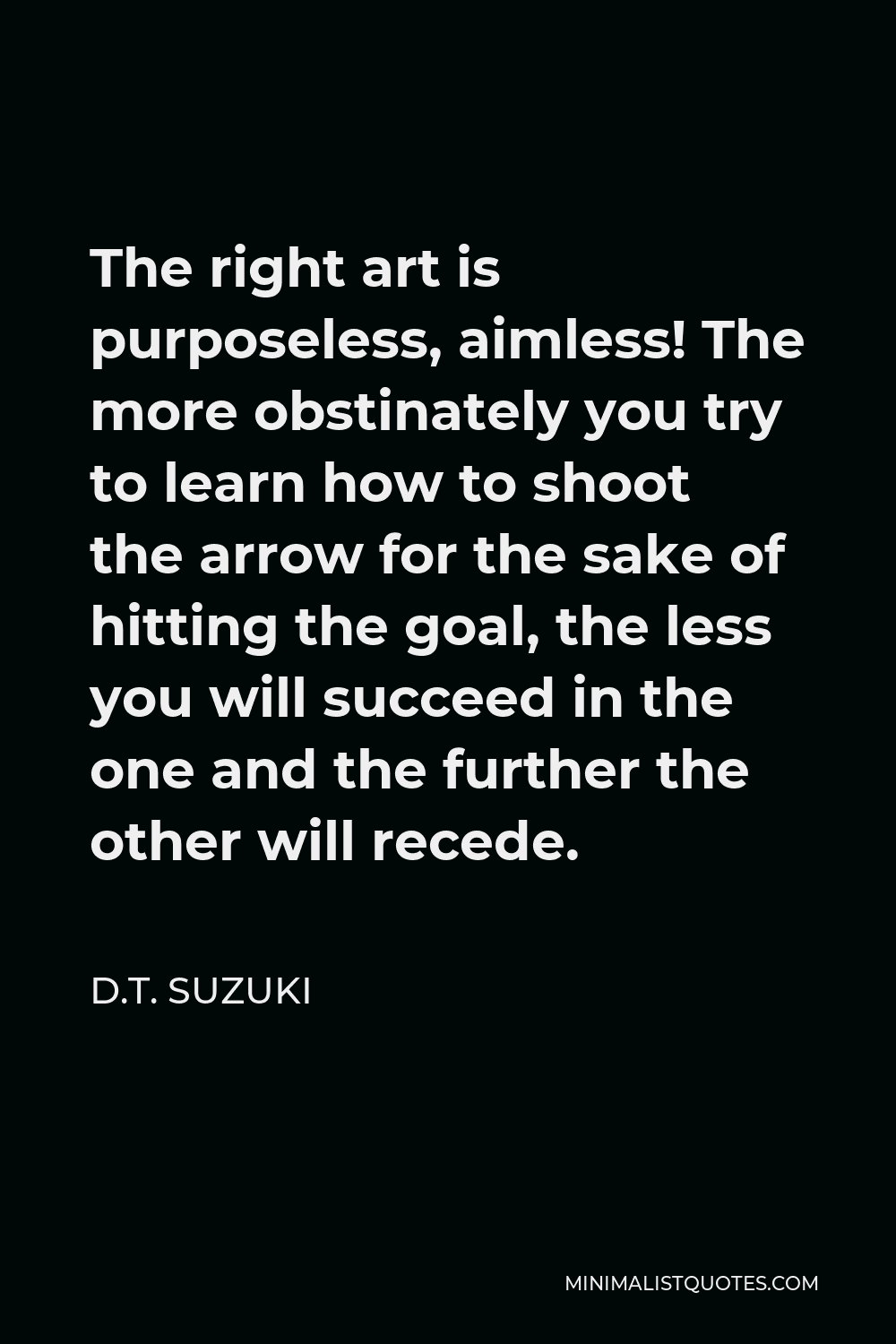
The right art is purposeless, aimless! The more obstinately you try to learn how to shoot the arrow for the sake of hitting the goal, the less you will succeed in the one and the further the other will recede.
D.T. SUZUKI -





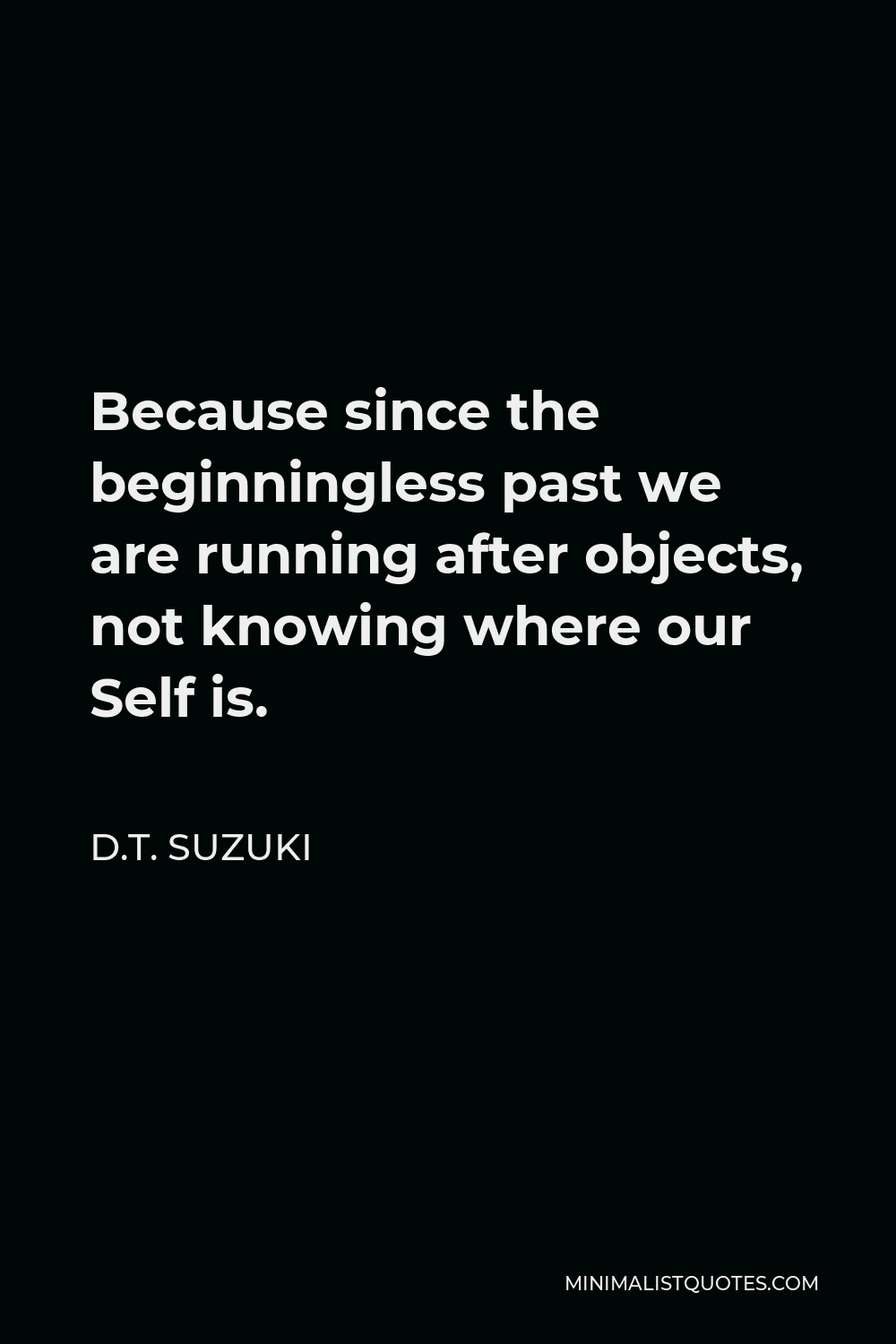
Because since the beginningless past we are running after objects, not knowing where our Self is.
D.T. SUZUKI -





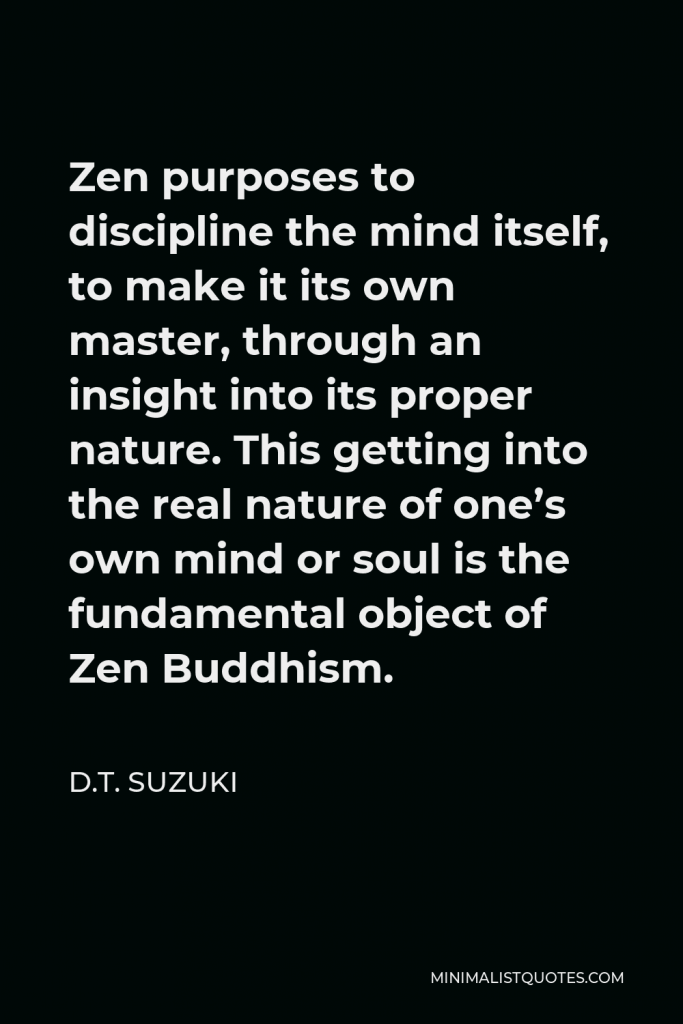

Zen purposes to discipline the mind itself, to make it its own master, through an insight into its proper nature. This getting into the real nature of one’s own mind or soul is the fundamental object of Zen Buddhism.
D.T. SUZUKI -





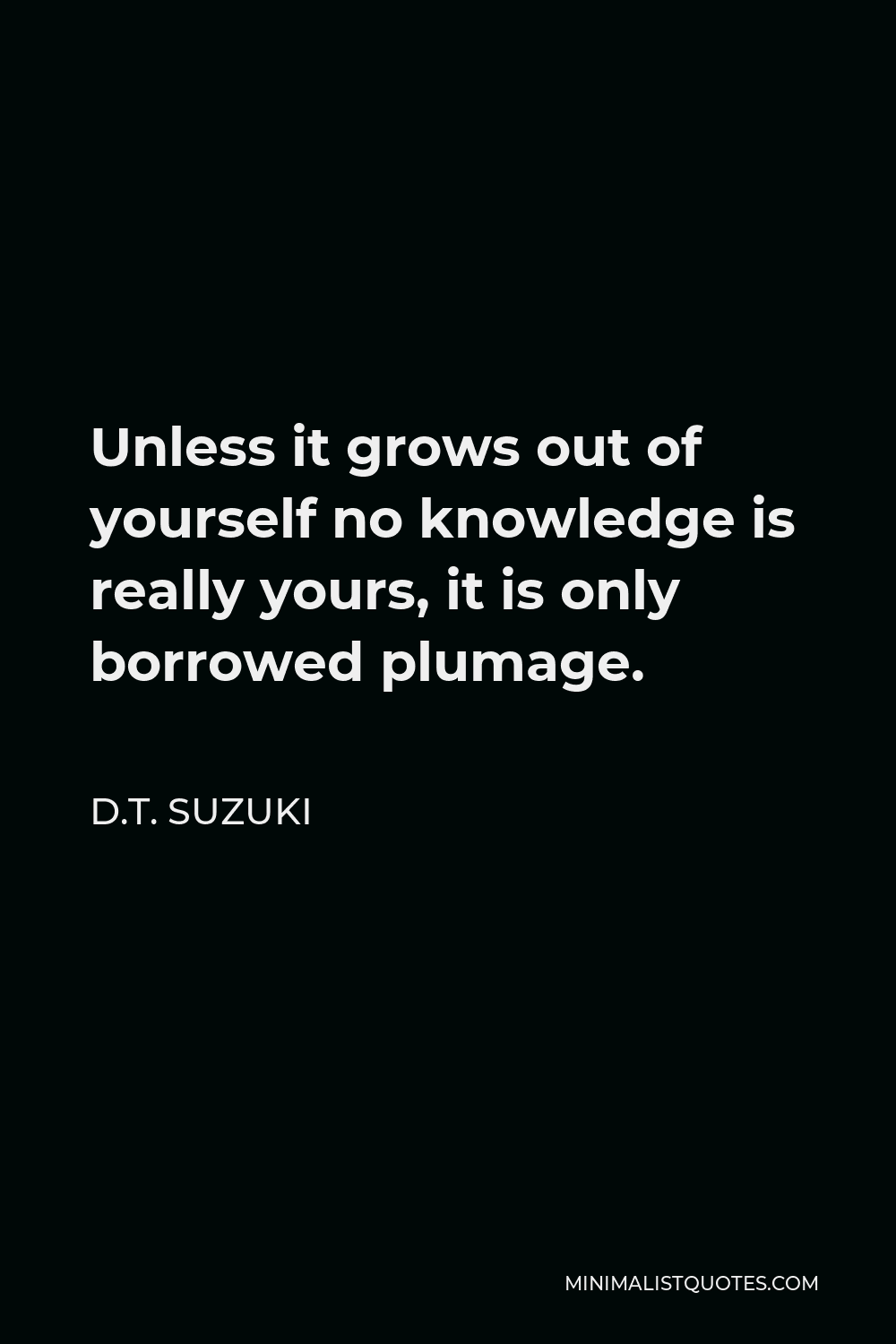
Unless it grows out of yourself no knowledge is really yours, it is only borrowed plumage.
D.T. SUZUKI -





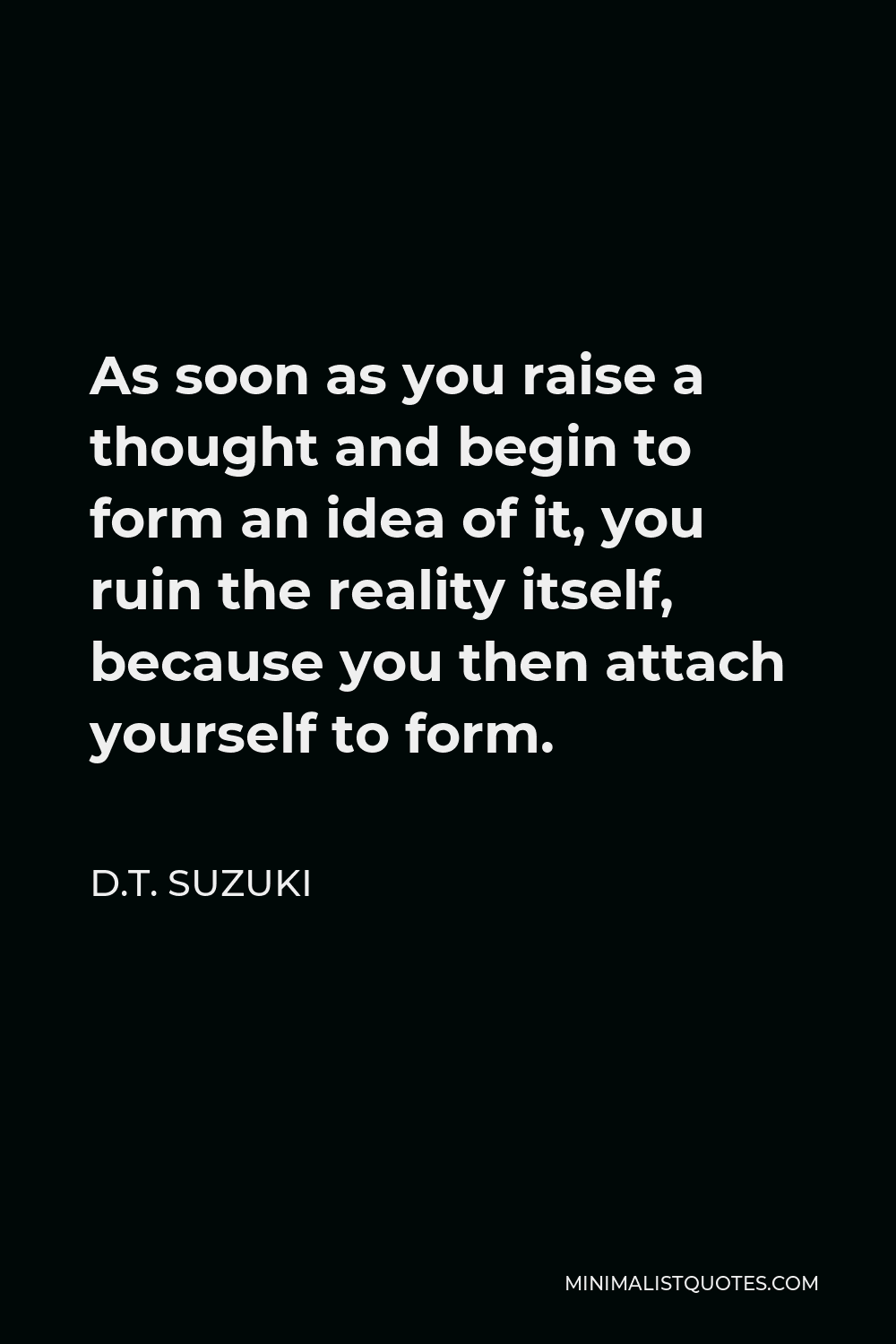
As soon as you raise a thought and begin to form an idea of it, you ruin the reality itself, because you then attach yourself to form.
D.T. SUZUKI -





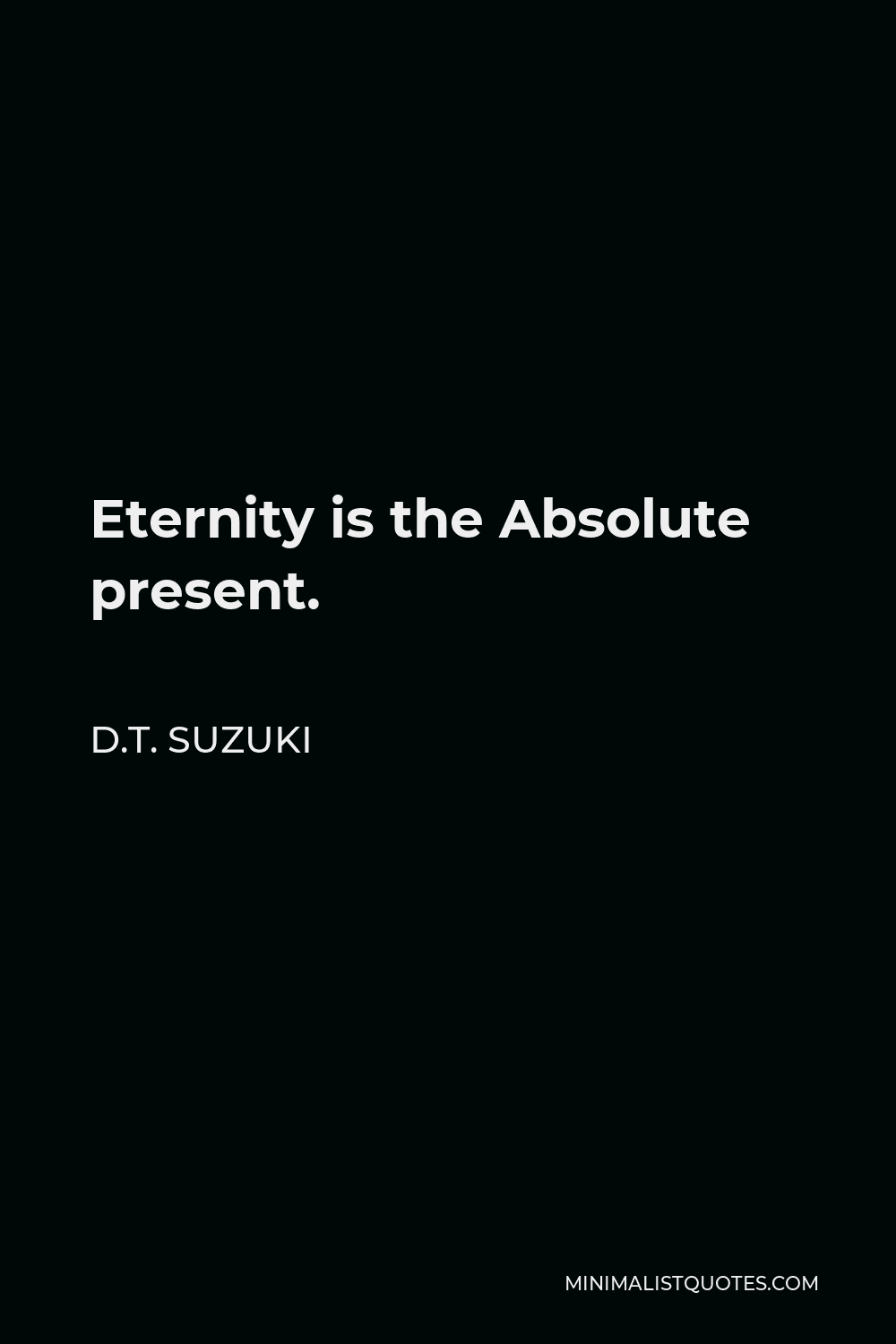
Eternity is the Absolute present.
D.T. SUZUKI -






If you have attained something, this is the surest proof that you have gone astray. Therefore, not to have is to have, silence is thunder, ignorance is enlightenment.
D.T. SUZUKI -





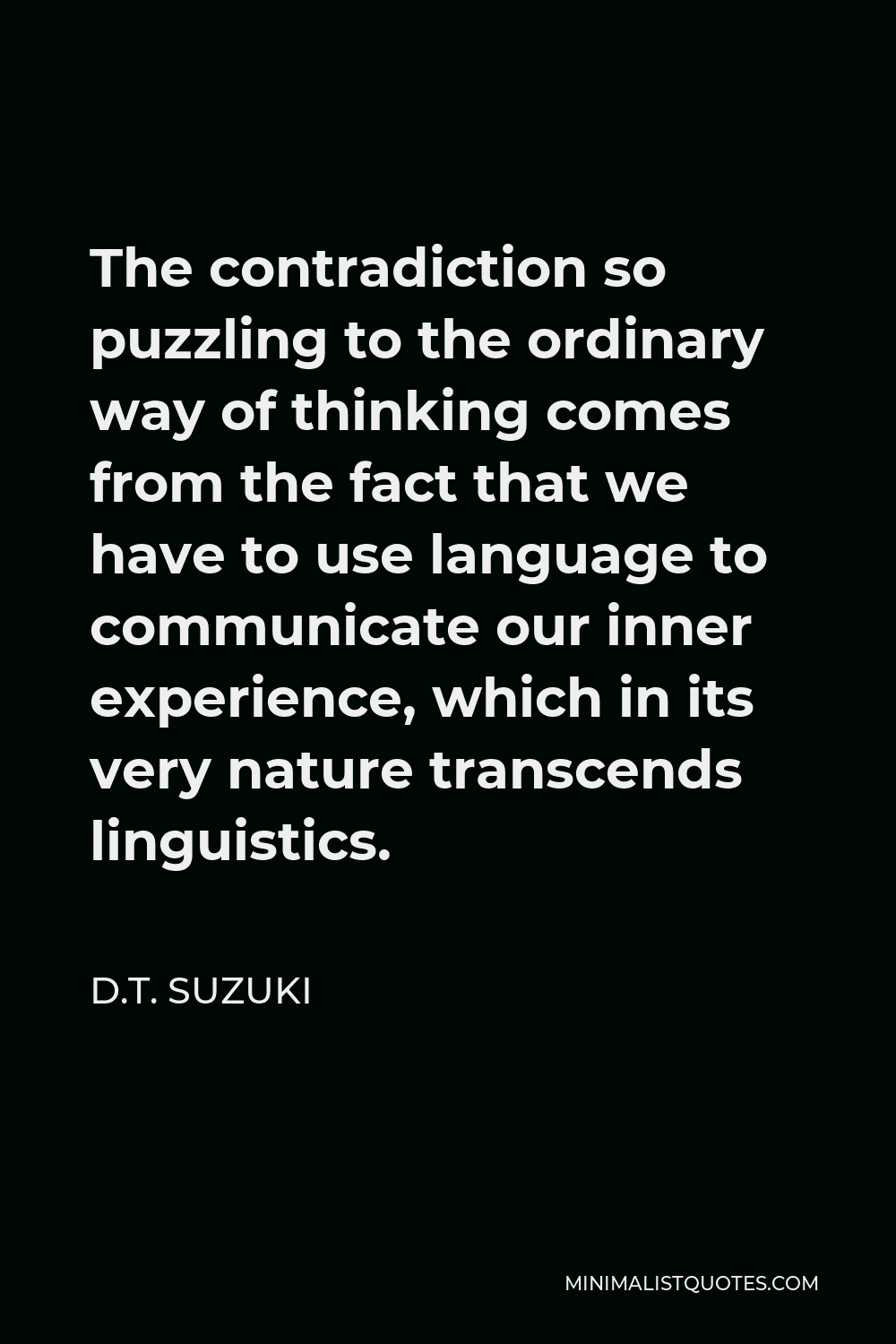
The contradiction so puzzling to the ordinary way of thinking comes from the fact that we have to use language to communicate our inner experience, which in its very nature transcends linguistics.
D.T. SUZUKI -







The fighter is to be always single-minded with one object in view: to fight, looking neither backward nor sidewise. To go straight forward in order to crush the enemy is all that is necessary for him.
D.T. SUZUKI -





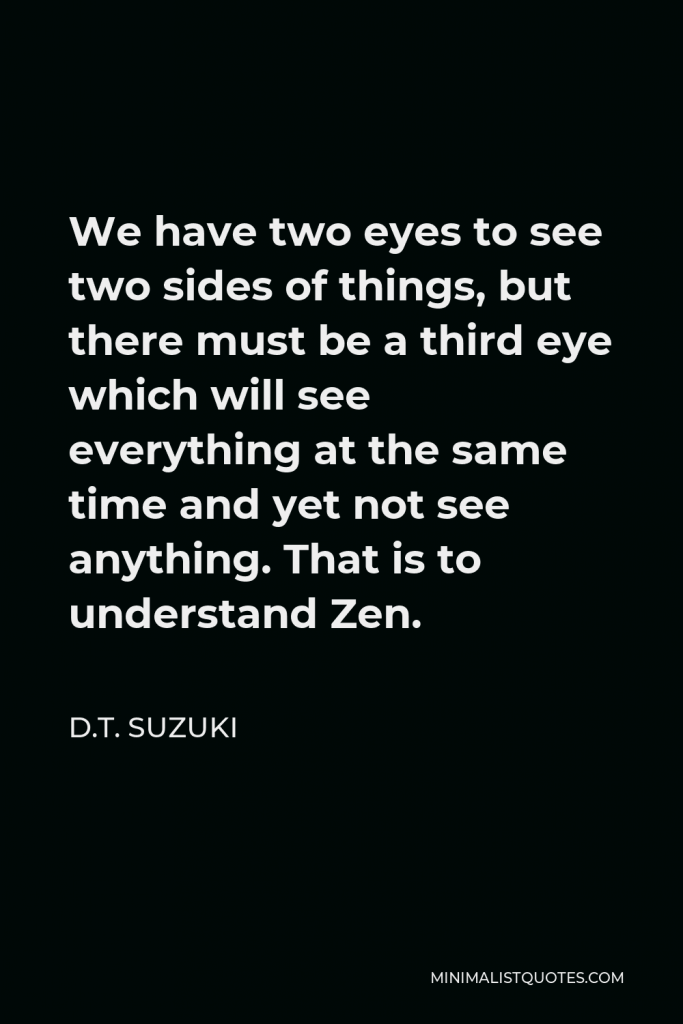

We have two eyes to see two sides of things, but there must be a third eye which will see everything at the same time and yet not see anything. That is to understand Zen.
D.T. SUZUKI -





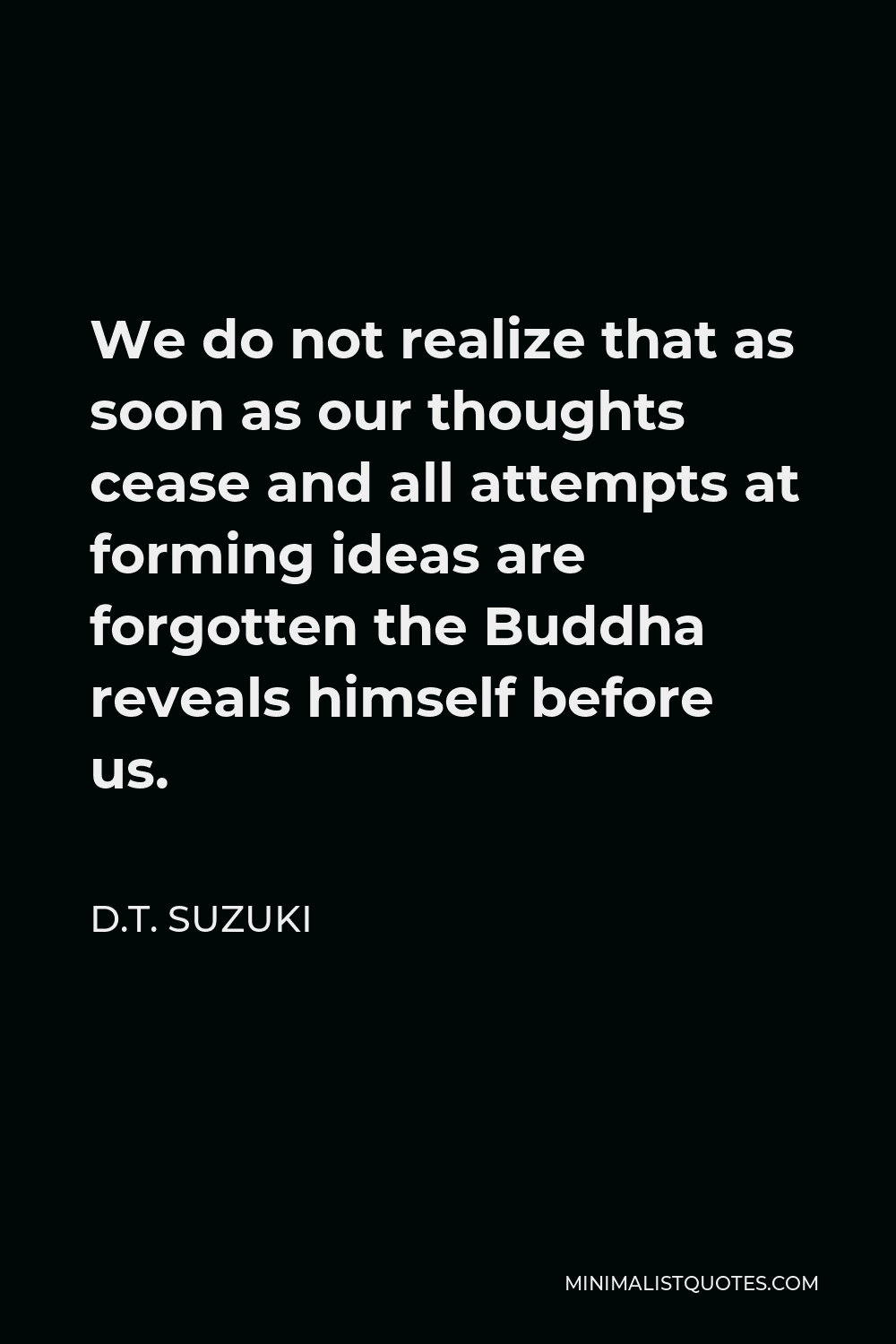
We do not realize that as soon as our thoughts cease and all attempts at forming ideas are forgotten the Buddha reveals himself before us.
D.T. SUZUKI -





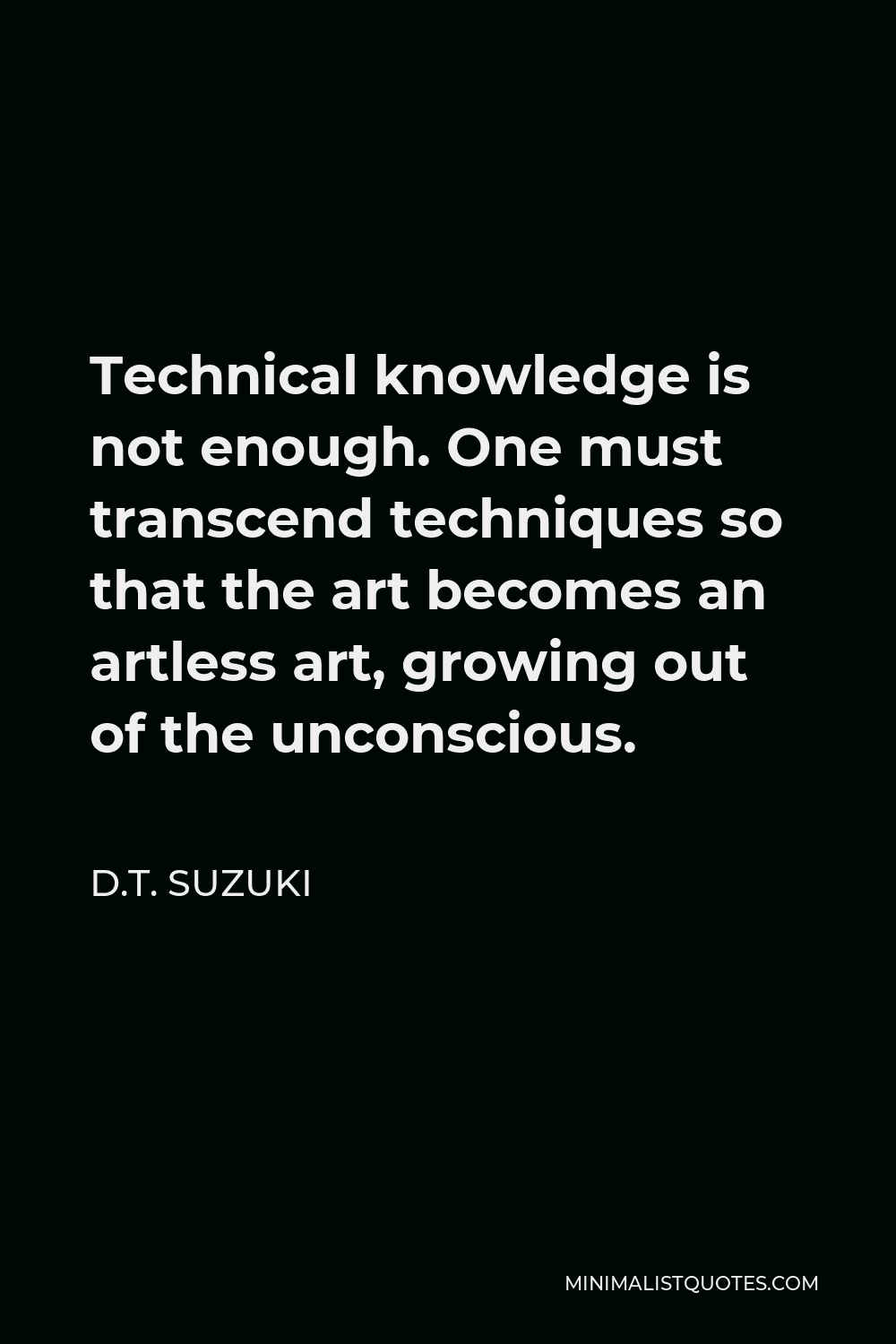
Technical knowledge is not enough. One must transcend techniques so that the art becomes an artless art, growing out of the unconscious.
D.T. SUZUKI -





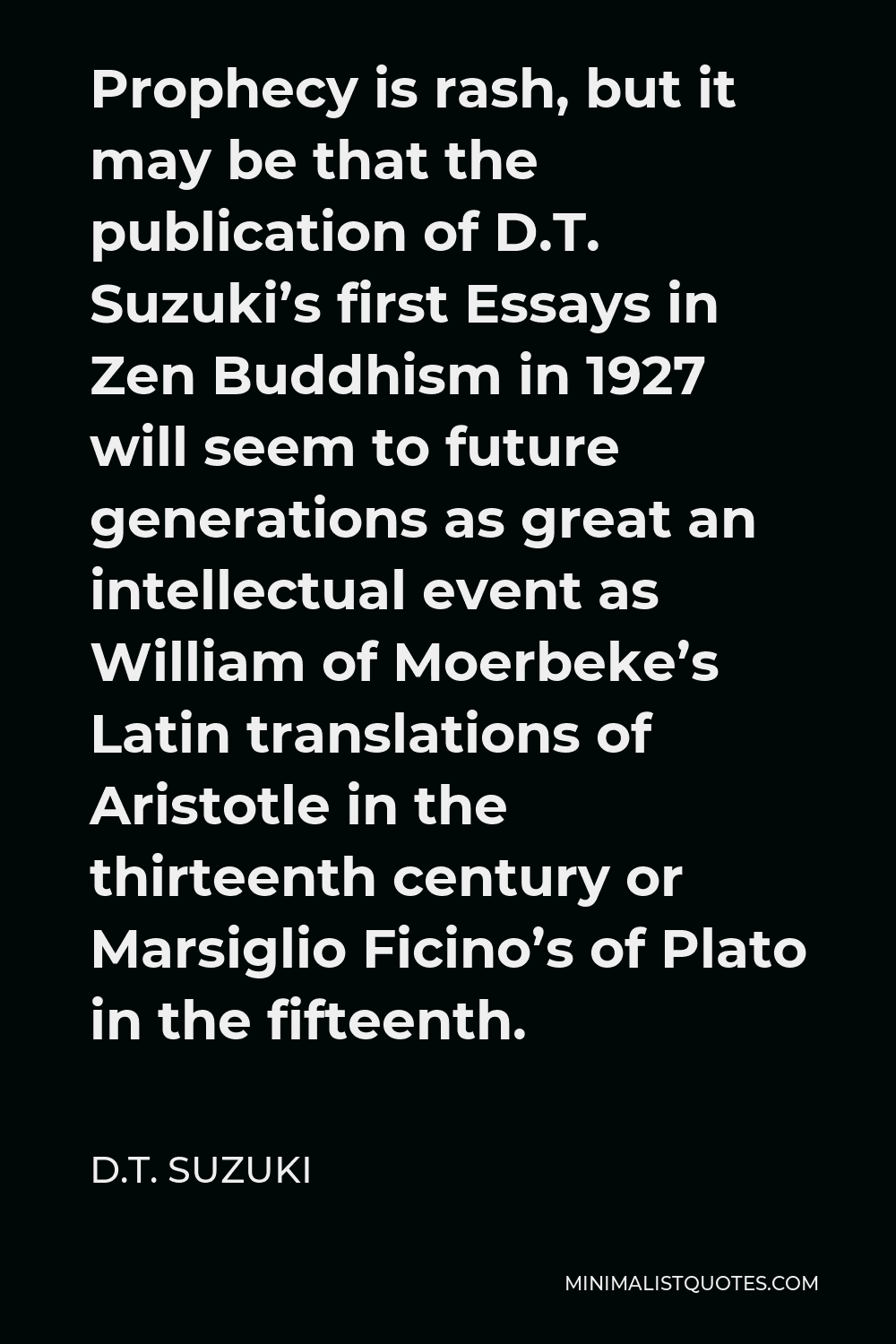
Prophecy is rash, but it may be that the publication of D.T. Suzuki’s first Essays in Zen Buddhism in 1927 will seem to future generations as great an intellectual event as William of Moerbeke’s Latin translations of Aristotle in the thirteenth century or Marsiglio Ficino’s of Plato in the fifteenth.
D.T. SUZUKI -





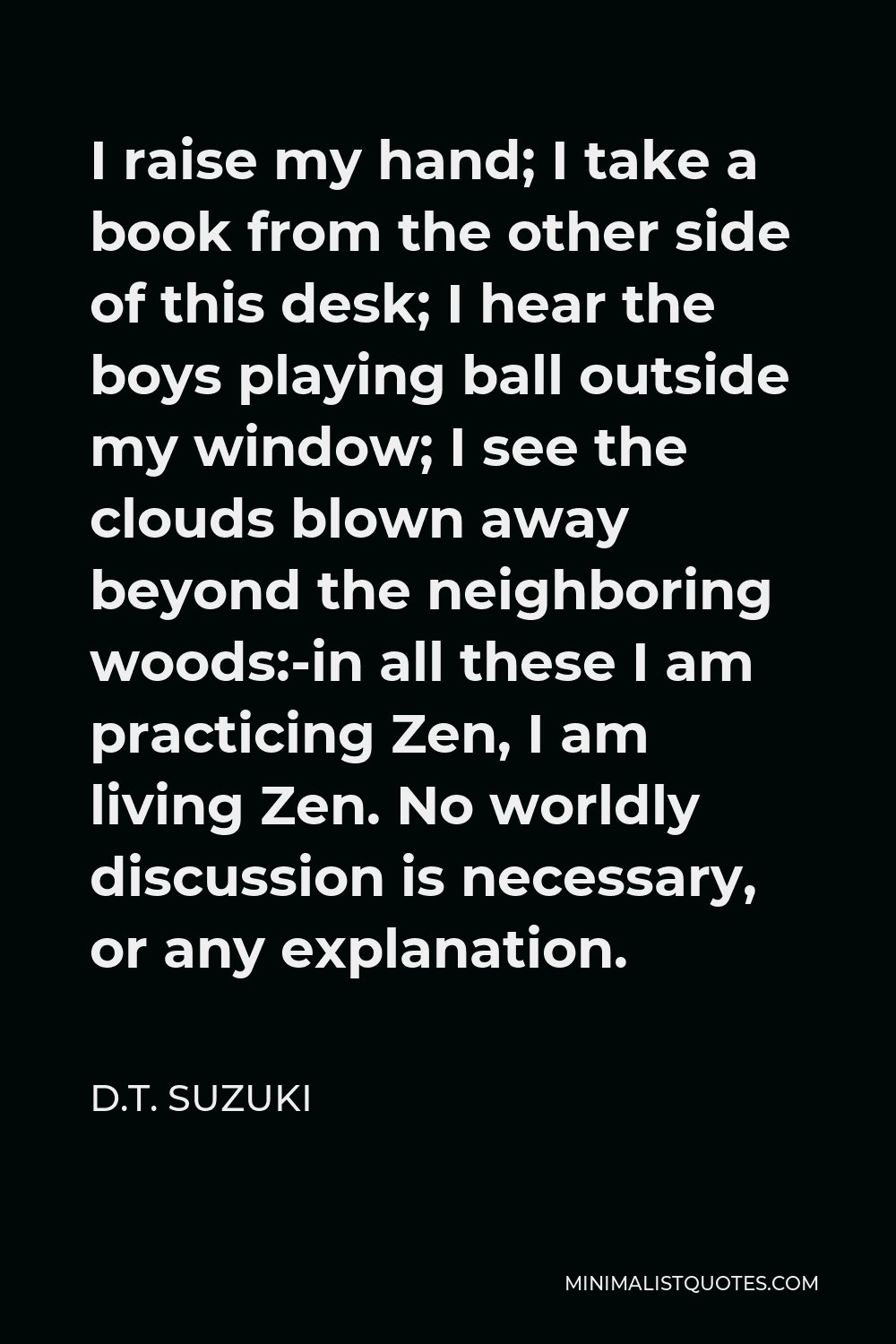
I raise my hand; I take a book from the other side of this desk; I hear the boys playing ball outside my window; I see the clouds blown away beyond the neighboring woods:-in all these I am practicing Zen, I am living Zen. No worldly discussion is necessary, or any explanation.
D.T. SUZUKI -





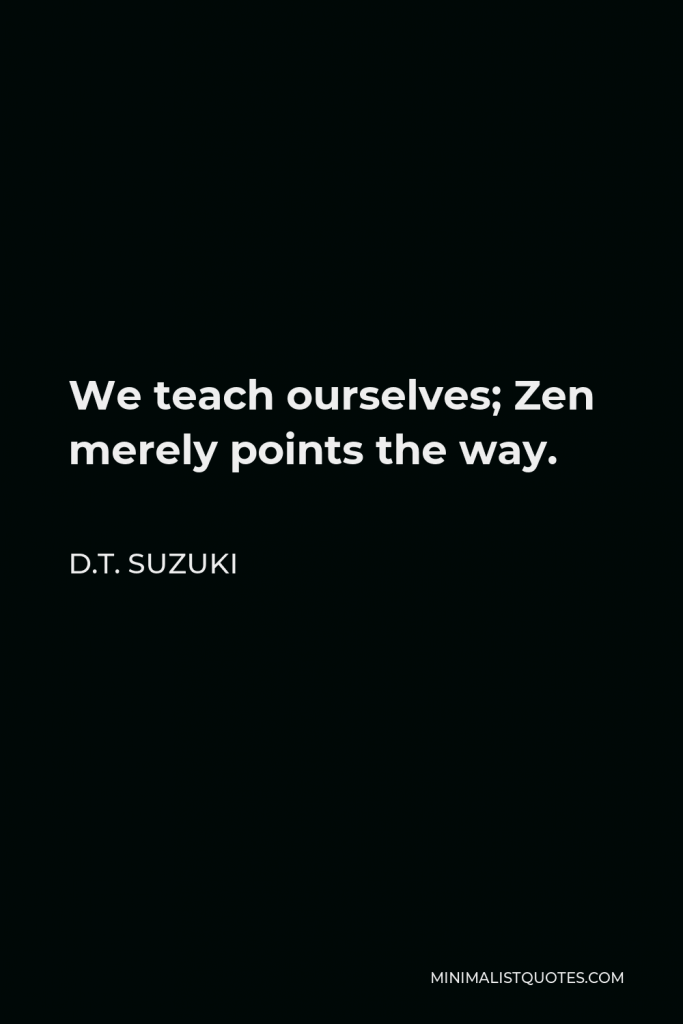

We teach ourselves; Zen merely points the way.
D.T. SUZUKI

